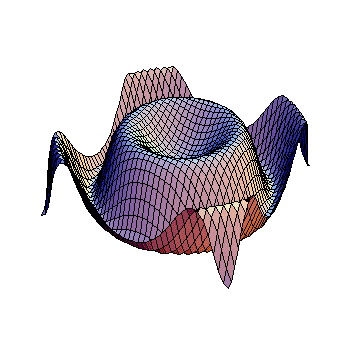How do you differentiate #f(x)=cos(sqrt((cosx^2))) # using the chain rule?
2 Answers
Explanation:
Use progressively the chain rule which says :
so,
because
Therefore;
Finally,
because
Explanation:
I'll be using Leibniz notation because I think it's easier to understand more complicated chain rule applications with this.
The chain rule, in said notation goes as follows,
For
Or, if we can say that a function
In this case we have
By saying
Or
Now, if we say that
Or
If we say
Or
Or, finally
And now we subsitute everything back to terms of


